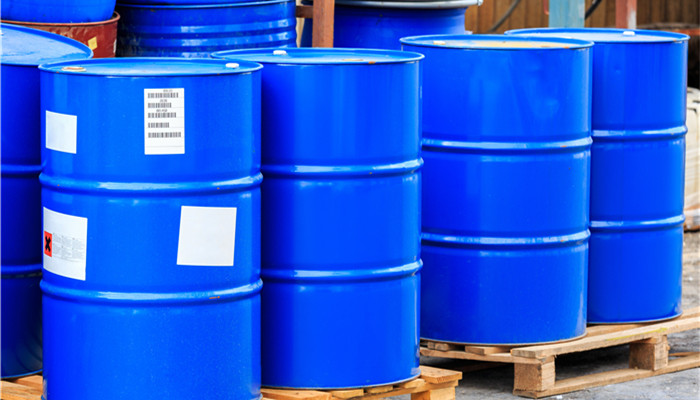
The tight ibuprofen market drives demand for propionic acid, and the propionic acid industry accelerates development
Propanoic acid, also known as oleic acid, is a short-chain saturated fatty acid with a chemical formula of CH3CH2COOH and a molecular weight of 74.08. Propionic acid has strong bactericidal effect, good body metabolism regulation, excellent high temperature resistance, etc. It is an important fine chemical product and organic synthesis raw material. Propionic acid can be used in food additives, feed preservatives, pharmaceutical intermediates, pesticides and spices and other industries. Especially as a pharmaceutical intermediate, propionic acid can be used to produce antipyretics such as ibuprofen.
As a basic chemical raw material, propionic acid has a wide range of applications and a large market demand. Especially in the field of pesticides, propionic acid can be used to produce herbicides, which has a large demand and is the main application field of propionic acid. Recently, with the changes in epidemic prevention policies, the number of people infected with COVID-19 has increased rapidly, resulting in a short-term surge in demand for antipyretics and analgesics represented by ibuprofen. The market is in a state of severe supply shortage, and ibuprofen and other manufacturers have stepped up their production efforts. As the main raw material of ibuprofen and other drugs, propionic acid’s market demand is also growing rapidly. As the largest producer of propionic acid in the country, Yangzi Petrochemical, a joint venture between Sinopec Group’s Yangzi Petrochemical and BASF, stated that it is making every effort to ensure production and supply and support pharmaceutical production.
The technical threshold for propionic acid is relatively high, and its scale effect is obvious. Enterprises with integrated industrial chains have stronger advantages. Therefore, global propionic acid production capacity is mainly controlled by BASF, Dow, Eastman, Pasto and other chemical industries. Among them, BASF not only has a large production base in Germany, but also established a joint venture with Yangzi Petrochemical in China to jointly produce propionic acid. Although Europe and the United States have profound technological accumulation and huge production capacity in the chemical field, as labor costs in Europe and the United States rise and industries move overseas, the chemical industry with high pollution and low added value is gradually developing with China as the core. With the relocation of the country, China’s propionic acid industry has accelerated its development. It not only has strong production capacity, but also domestic companies are actively expanding production capacity. Large Chinese chemical companies represented by Luxi Chemical are actively expanding production to meet downstream market demand. According to the released “Propionic acid industry market status research report in 2022“, in 2021, China’s propionic acid production capacity will be nearly 100,000 tons , but due to strong domestic market demand, some propionic acid still needs to be imported from abroad.
Analysts believe that due to the strong supply and demand in the market for antipyretics such as ibuprofen, the focus of the propionic acid market will tilt towards the pharmaceutical field. The propionic acid-related industrial chain will also receive a short-term boost, which will stimulate the short-term attention of the capital market. Coupled with the entry of Luxi Chemical, China will become the world’s largest producer of propionic acid in the future, and the consumer market will also benefit after the huge production capacity is put into production. satisfy. However, in the long term, short-term demand in the pharmaceutical field will not be sustainable, and the propionic acid industry must pay attention to the problem of overcapacity.

 微信扫一扫打赏
微信扫一扫打赏

